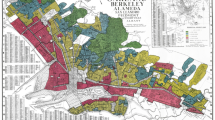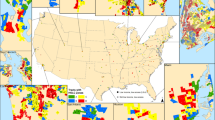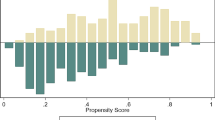Abstract
The expansion of illicit lottery activities has caused significant harm to both agricultural production and the livelihood of rural residents. An analysis of the factors that influence rural residents' participation in underground lotteries can provide crucial insight for regulating the lottery industry's development. This study examines the present state of rural residents' participation in underground lotteries, investigates the factors that impact their participation using the Double-Hurdle model, and further employs the ISM model to evaluate the correlations and hierarchical structure among the factors, using field survey data collected from 603 rural residents in S Province, China. The findings reveal that 53.07% of the respondents have participated in underground lotteries. Risk preference, information acquisition, social networks, age, education, family burden, percentage of agricultural labor, agricultural business scale, and household income significantly affect whether residents purchase lotteries (WPL). All factors, except the percentage of agricultural labor and agricultural business scale, also significantly impact underground lottery spending (LS). Among the significant influencing factors, rural residents' risk preference is the direct surface factor, whereas agricultural business scale, household income, information acquisition, and social networks are the middle indirect factors, and residents' age, education, family burden, and percentage of agricultural labor are the deep-rooted factors. It is recommended to regulate the lottery industry's development can be achieved by enhancing entertainment and cultural activities, expanding economic opportunities, enhancing rural education, increasing law awareness, and improving the public welfare lottery business model. The conclusions offer a valuable reference point for the standardized development of the lottery industry and the promotion of social stability in rural areas.







Similar content being viewed by others
Data availability
The datasets generated and analyzed during the current study are not publicly available due to personal privacy and non-open access to the research program but are available from the corresponding author on reasonable request.
References
Amonhaemanon, D. (2022). Financial literacy and financial risk tolerance of lottery gamblers in Thailand. International Journal of Business and Society, 23(2), 633–648.
Ariyabuddhiphongs, V. (2006). A test of the social cognitive model of lottery gambling in Thailand. International Gambling Studies, 6(1), 77–93.
Ariyabuddhiphongs, V. (2011). Lottery gambling: A review. Journal of Gambling Studies, 27(1), 15–33.
Attanasi, G., Georgantzís, N., Rotondi, V., & Vigani, D. (2018). Lottery-and survey-based risk attitudes linked through a multichoice elicitation task. Theory and Decision, 84, 341–372.
Bakır, N. O., & Klutke, G. A. (2011). Information and preference reversals in lotteries. European Journal of Operational Research, 210(3), 752–756.
Brenner, R., Brenner, G. A., & Brenner, G. A. (1991). Gambling and speculation: A theory, a history, and a future of some human decisions. Cambridge University Press, 36(8), 728–729.
Chen, G. K. (2016). Analysis of criminal policy in the governance of gambling crimes in China. Journal of Central South University (social Sciences), 22(4), 23–31.
Cheng, Z., Smyth, R., & Sun, G. (2014). Participation and expenditure of migrants in the illegal lottery in China’s pearl River delta. Eurasian Geography and Economics, 55(4), 333–361.
Cragg, J. G. (1971). Some statistical models for limited dependent variables with application to the demand for durable goods. Econometrica: Journal of the Econometric Society. https://doi.org/10.2307/1909582
Feiger, G. (1976). What is speculation? The Quarterly Journal of Economics, 90(4), 677–687.
Forrest, D., Simmons, R., & Chesters, N. (2002). Buying a dream: Alternative models of demand for lotto. Economic Inquiry, 40(3), 485–496.
Fullenkamp, C., Tenorio, R., & Battalio, R. (2003). Assessing individual risk attitudes using field data from lottery games. Review of Economics and Statistics, 85(1), 218–226.
Granovetter, M. (1985). Economic action and social structure: The problem of embeddedness. American Journal of Sociology, 91(3), 481–510.
Holt, C. A., & Laury, S. K. (2002). Risk aversion and incentive effects. American Economic Review, 92(5), 1644–1655.
Huang, S. Y. (2006). Private lottery viewed through a comparative study of private lottery and public lottery. Journal of Hainan Normal University (social Sciences), 5, 152–156.
Humphreys, B. R., & Perez, L. (2013). Syndicated play in lottery games. Journal of Socio-Economics, 45, 124–131.
Jackson, R. (1994). Demand for lottery products in Massachusetts. Journal of Consumer Affairs, 28(2), 313–325.
Krige, D. (2011). We are running for a living: Work, leisure and speculative accumulation in an underground numbers lottery in Johannesburg. African Studies, 70(1), 3–24.
Li, L., Zhang, R., & Zhang, Y. (2021). A new exploration on the influencing factors of consumers’ purchase decision-making behavior in quiz-type sports lottery. Journal of Sports Research, 35(01), 68–77.
Li, T. (2006). Social interaction and investment choice. Economic Research Journal, 8, 45–57.
Lin, H. W., & Lu, H. F. (2015). Elucidating the association of sports lottery bettors’ socio-demographics, personality traits, risk tolerance and behavioural biases. Personality and Individual Differences, 73, 118–126.
Lutter, M., Tisch, D., & Beckert, J. (2018). Social explanations of lottery play: New evidence based on national survey data. Journal of Gambling Studies, 34(4), 1185–1203.
Ma, T. P., Zhang, B. Y., & Mo, D. Y. (2022). Lottery signals and risk selection: Quasi-natural experiment based on stocks with special treatment warning. Financial Economics Research, 37(3), 64–82.
Mao, L. L., Zhang, J. J., & Connaughton, D. P. (2015). Determinants of demand for sports lottery: Insights from a multilevel model. Asian Economic and Financial Review, 5(8), 973–987.
May, C., & Finch, T. (2009). Implementing, embedding, and integrating practices: An outline of normalization process theory. Sociology, 43(3), 535–554.
Mazar, A., Williams, R. J., Stanek, E. J., Zorn, M., & Volberg, R. A. (2018). The importance of friends and family to recreational gambling, at-risk gambling, and problem gambling. BMC Public Health, 18, 1–14.
Mosley, P., & Verschoor, A. (2005). Risk attitudes and the ‘vicious circle of poverty. The European Journal of Development Research, 17(1), 59–88.
Orford, J. (2011). An unsafe bet? The dangerous rise of gambling and the debate we should be having. International Gambling Studies, 11(2), 264–266.
Pusaksrikit, T., Pongsakornrungsilp, S., Chinchanachokchai, S., & Crosby, E. (2018). The superstitious journey of Thai lottery gamblers. Journal of Marketing Management, 34(13–14), 1126–1148.
Qiu, L., Rui, H., & Whinston, A. (2013). Social network-embedded prediction markets: The effects of information acquisition and communication on predictions. Decision Support Systems, 55(4), 978–987.
Scott, L., & Barr, G. (2013). Unregulated gambling in South African townships: A policy conundrum? Journal of Gambling Studies, 29, 719–732.
Shi, Y., Li, C., & Zhao, M. (2019). The impact of non-market value cognition and social capital on farmers’ willingness in farmland protection cooperation. China Population, Resources and Environment, 29(4), 94–103.
Spritzer, D. T., Laranjeira, R., Pinsky, I., Zaleski, M., Caetano, R., & Tavares, H. (2009). Access to gambling among Brazilian adolescents: Why should we care? Brazilian Journal of Psychiatry, 31, 392–393.
Steinmüller, H. (2011). The moving boundaries of social heat: Gambling in rural China. Journal of the Royal Anthropological Institute, 17(2), 263–280.
Sun, S., Zhang, Y., & Zhang, J. (2012). An empirical analysis of factors influencing willingness to implement quality and safety practices in hog farms (households) based on Logit-ISM model. Chinese Rural Economy, 10, 24–36.
Tian, T., Yang, G. Q., Zhao, W., & Wang, W. (2015). Research on the mechanisms of farmers’ participation in agricultural land improvement projects: Based on the theory of embedded social structure. Journal of Agrotechnical Economics, 7, 16–26.
Walker, G. J., Courneya, K. S., & Deng, J. (2006). Ethnicity, gender, and the theory of planned behavior: The case of playing the lottery. Journal of Leisure Research, 38(2), 224–248.
Wang, B., Guo, D., Liu, L., Yang, H., Huang, X., & Wang, M. (2015). Conceptual model concerning consumers perceived value of purchasing guessing sports lottery: Based on grounded theory. Journal of Tianjin University of Sport, 30(4), 292–297.
Wang, Y., & Gao, W. B. (2010). Characteristics of 2126 welfare computerized lottery buyers in China. Chinese Mental Health Journal, 24(04), 304–308.
Wei, Z. (2007). Economic analysis of the proliferation of mark six in rural areas: A social survey based on rural areas in Southeast Guizhou. Journal of Anhui Agricultural Sciences, 15, 4640–4641.
Welte, J. W., Barnes, G. M., Wieczorek, W. F., Tidwell, M. C., & Parker, J. (2002). Gambling participation in the US: Results from a national survey. Journal of Gambling Studies, 18, 313–337.
Wood, R. T. A., & Griffiths, M. D. (2004). Adolescent lottery and scratchcard players: Do their attitudes influence their gambling behaviour? Journal of Adolescence, 27(4), 467–475.
Xiong, H. F., & Huang, C. (2021). Short term MAX momentum effect and attenuation: Evidence from Shanghai stock exchange 50ETF option market. China Journal of Economics, 8(2), 73–92.
Zenker, J., Wagener, A., & Vollmer, S. (2018). Better knowledge need not affect behavior: A randomized evaluation of the demand for lottery tickets in rural Thailand. The World Bank Economic Review, 32(3), 570–583.
Zhang, G. Y., & Lv, D. H. (2017). Rural social embeddedness and farmland transfer behavior of farmers: An empirical analysis based on survey data of 936 farmer households in Jilin Province. Journal of Agrotechnical Economics, 8, 57–66.
Zhong, W. (2012). Research on sports lottery operation and legal control based on behavioral economics. Journal of Commercial Economics, 5, 101–103.
Funding
This work was supported by the National Natural Science Foundation of China [Grant Nos. 72103052; Nos. 72003054].
Author information
Authors and Affiliations
Contributions
YJ Conceptualization, Methodology, Software, Data curation, Formal analysis, Writing–original draft; DQ: Formal analysis, Supervision, Funding acquisition, Writing–review and editing, investigation; RH: Software, Data curation, Formal analysis–review and editing; RQ: Software, Data curation, Formal analysis–review and editing; TX: Conceptualization, Supervision, Funding acquisition, Project administration, Writing–review and editing.
Corresponding author
Ethics declarations
Conflict of interest
All authors certify that they have no affiliations with or involvement in any organization or entity with any financial interest or non-financial interest in the subject matter or materials discussed in this manuscript.
Additional information
Publisher's Note
Springer Nature remains neutral with regard to jurisdictional claims in published maps and institutional affiliations.
Rights and permissions
Springer Nature or its licensor (e.g. a society or other partner) holds exclusive rights to this article under a publishing agreement with the author(s) or other rightsholder(s); author self-archiving of the accepted manuscript version of this article is solely governed by the terms of such publishing agreement and applicable law.
About this article
Cite this article
Ji, Y., Qiao, D., Hao, R. et al. Buying a Wealthy Dream: Determinants of Rural Residents' Lottery Purchase Behavior in China. J Gambl Stud (2024). https://doi.org/10.1007/s10899-024-10286-7
Accepted:
Published:
DOI: https://doi.org/10.1007/s10899-024-10286-7




